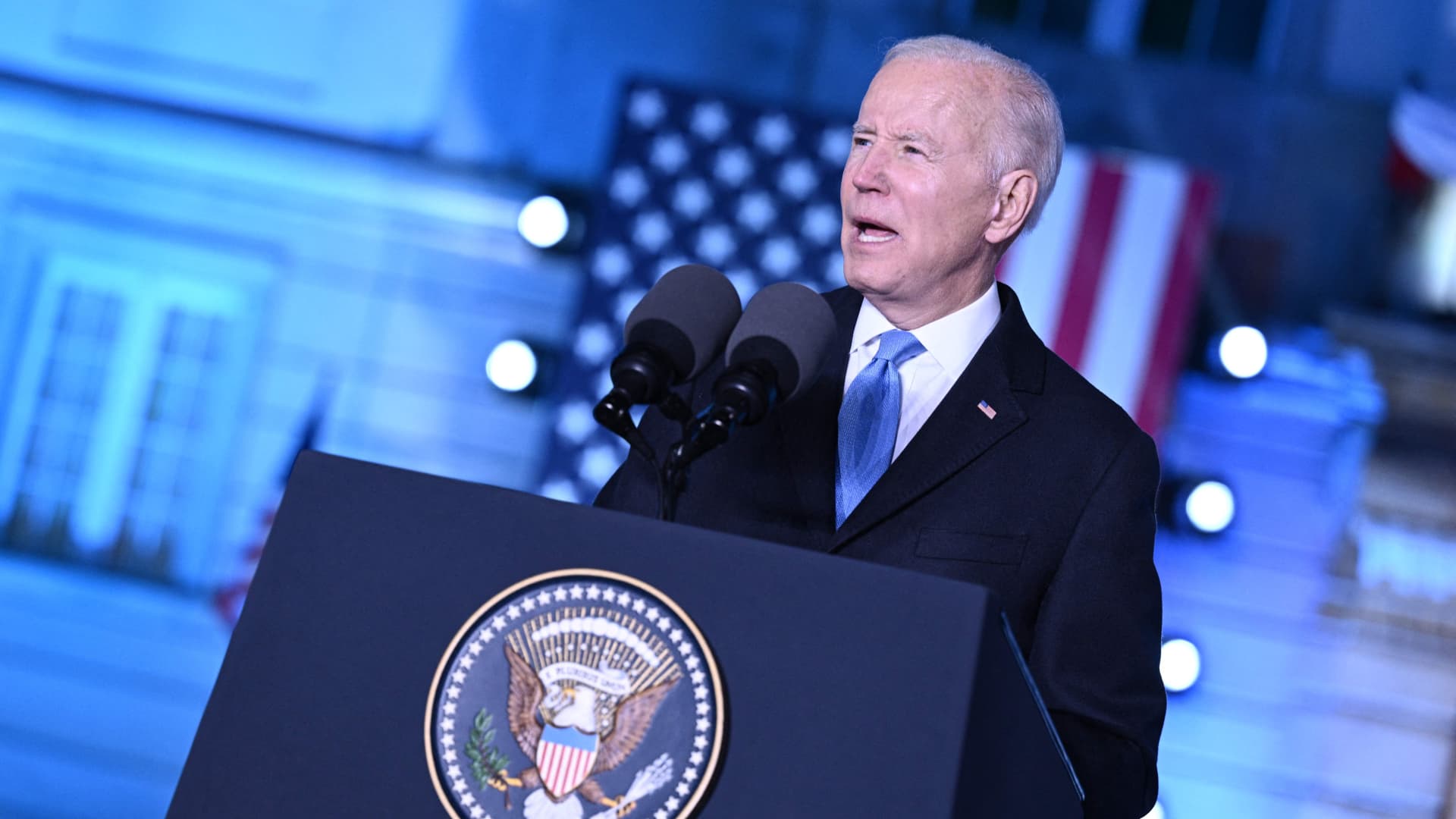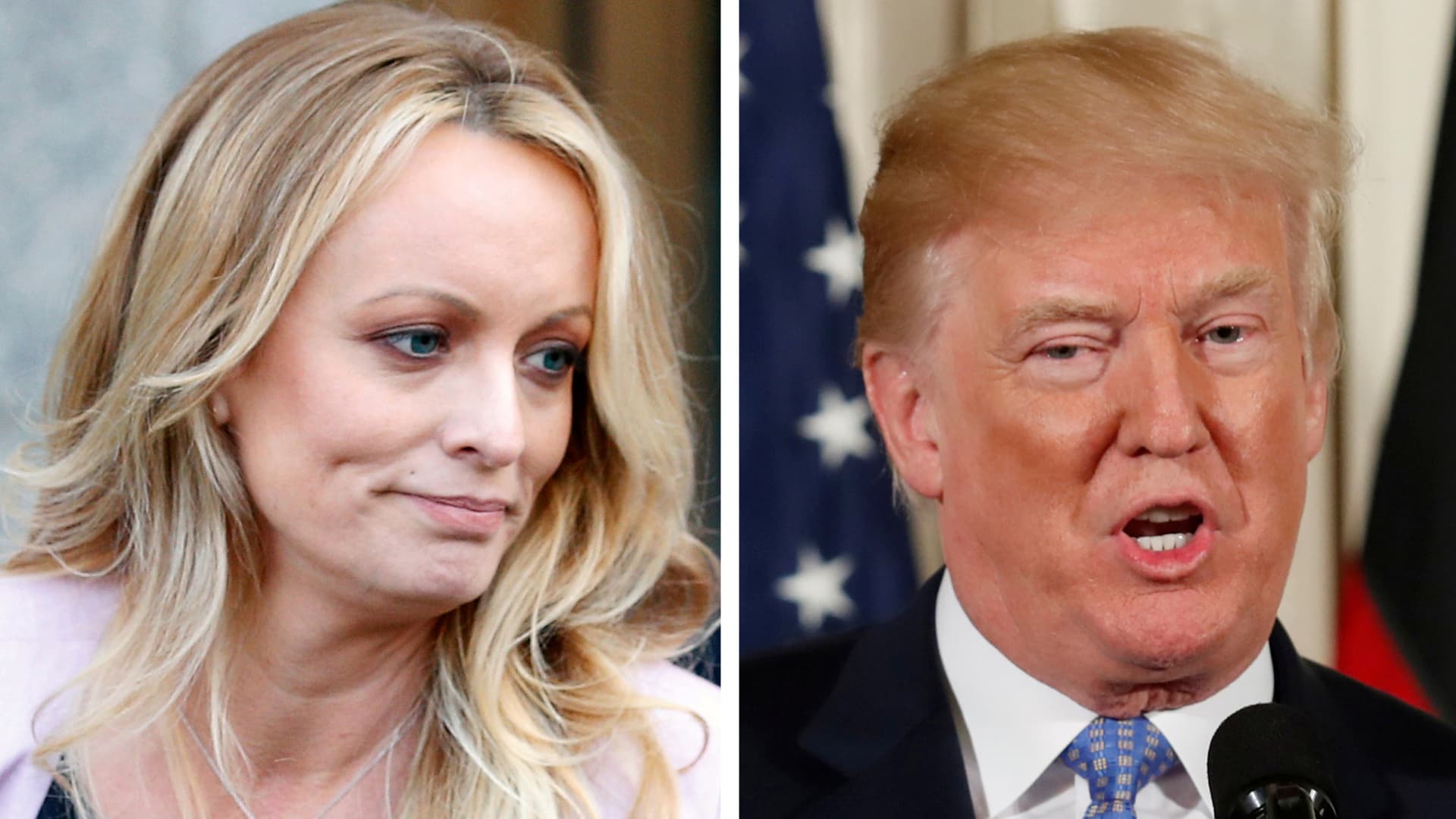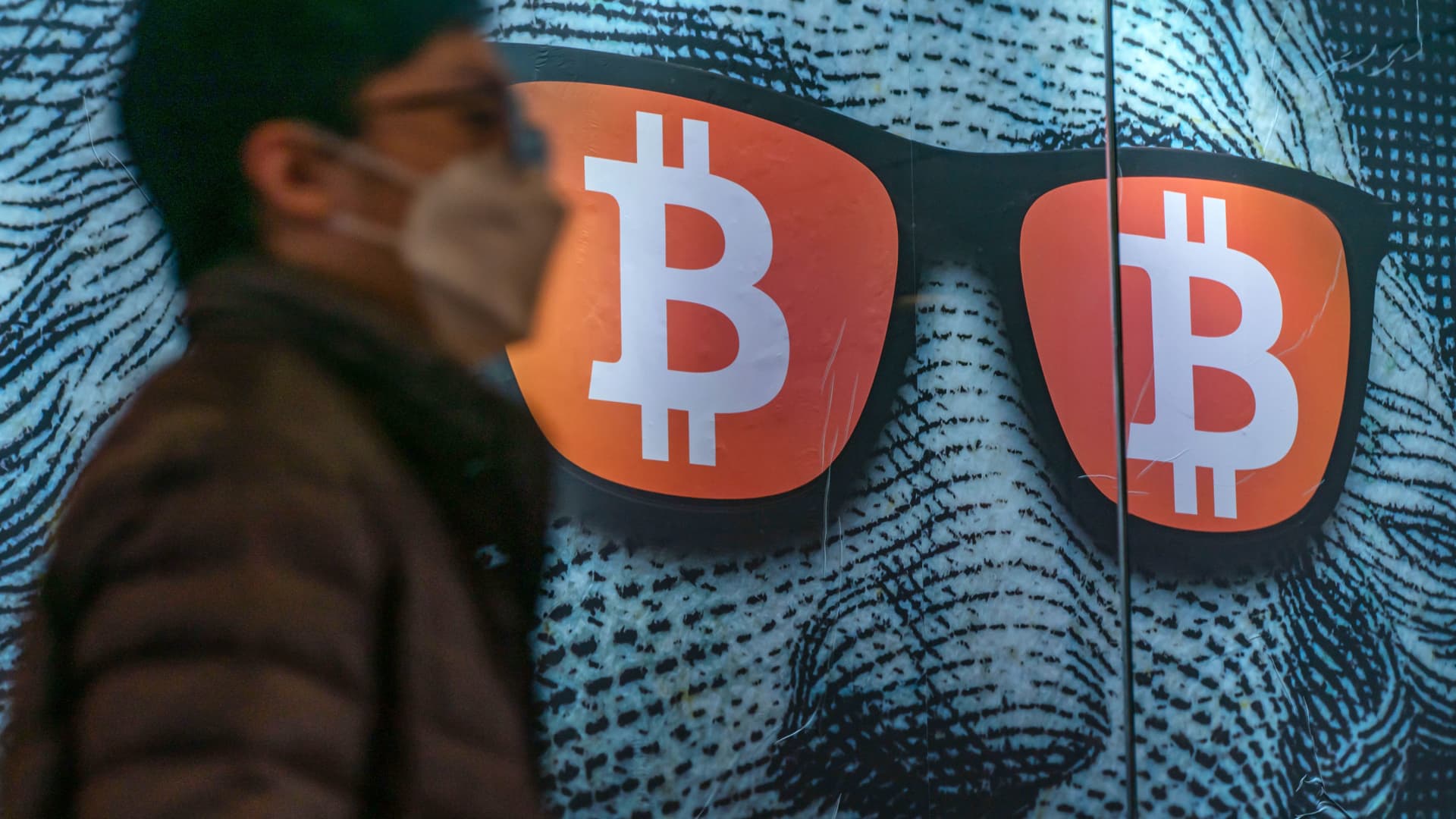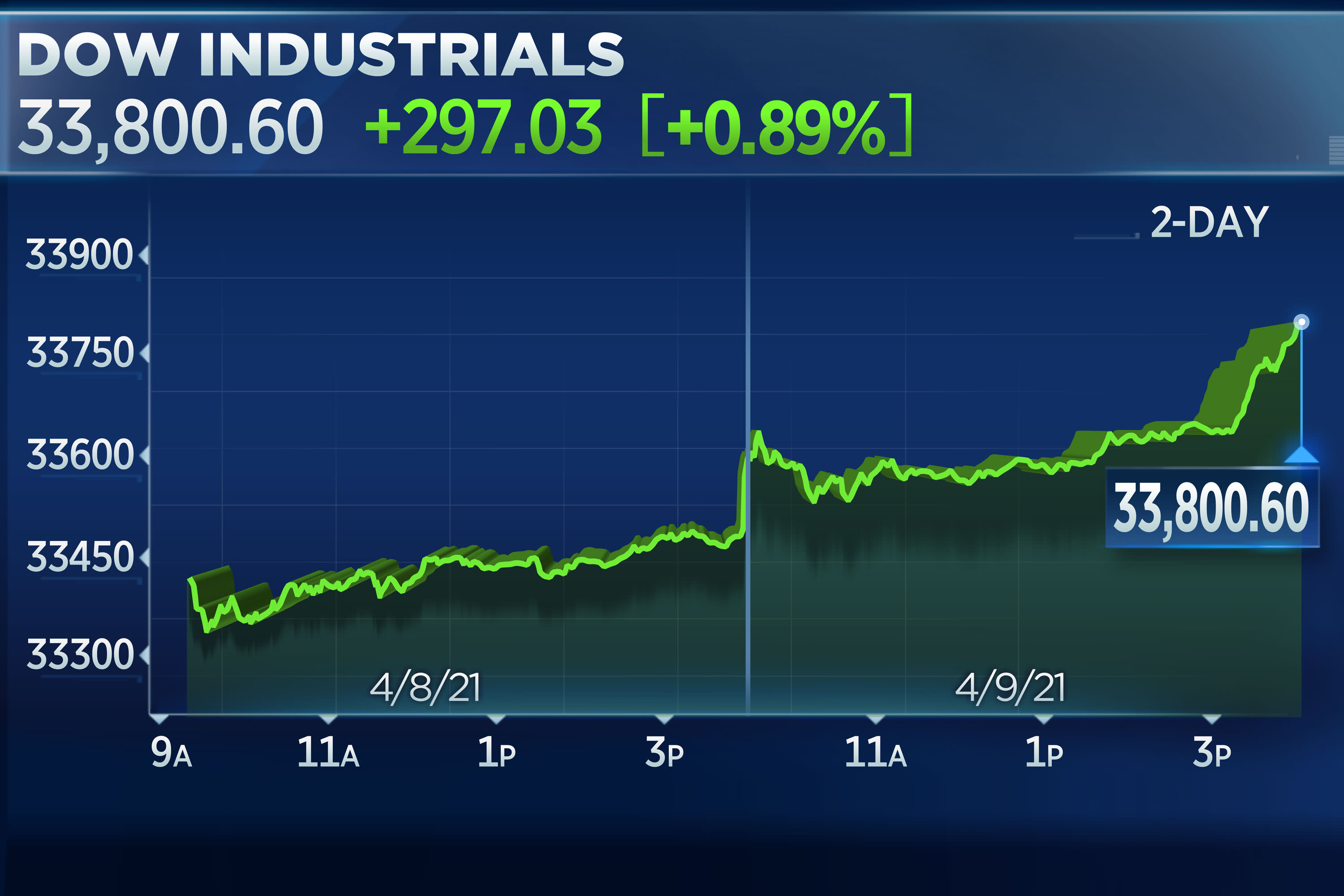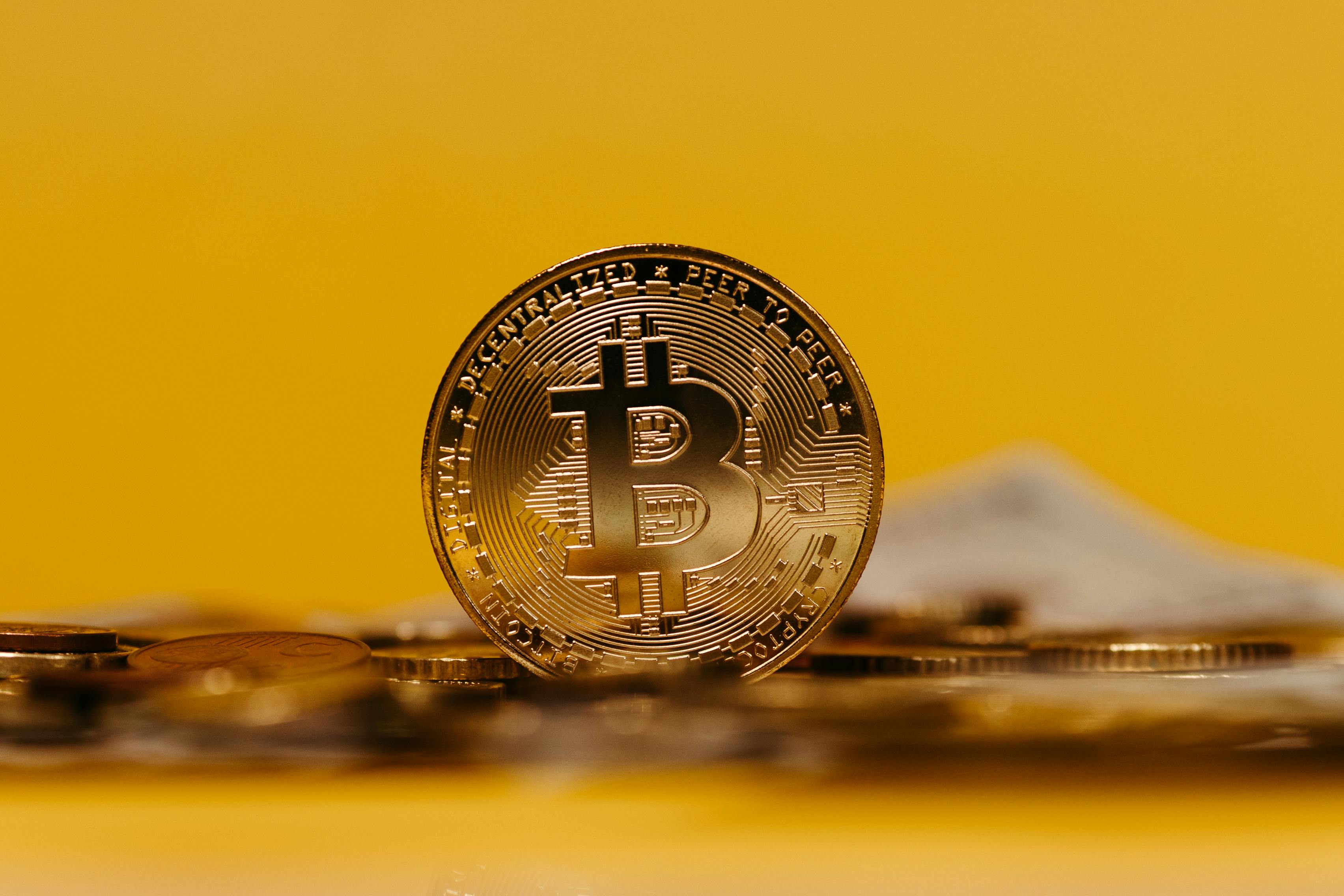Voters blame businesses more than Biden for sticky inflation
According to the latest consumer price index, inflation rose by 0.4% in February, driven mostly by housing prices.
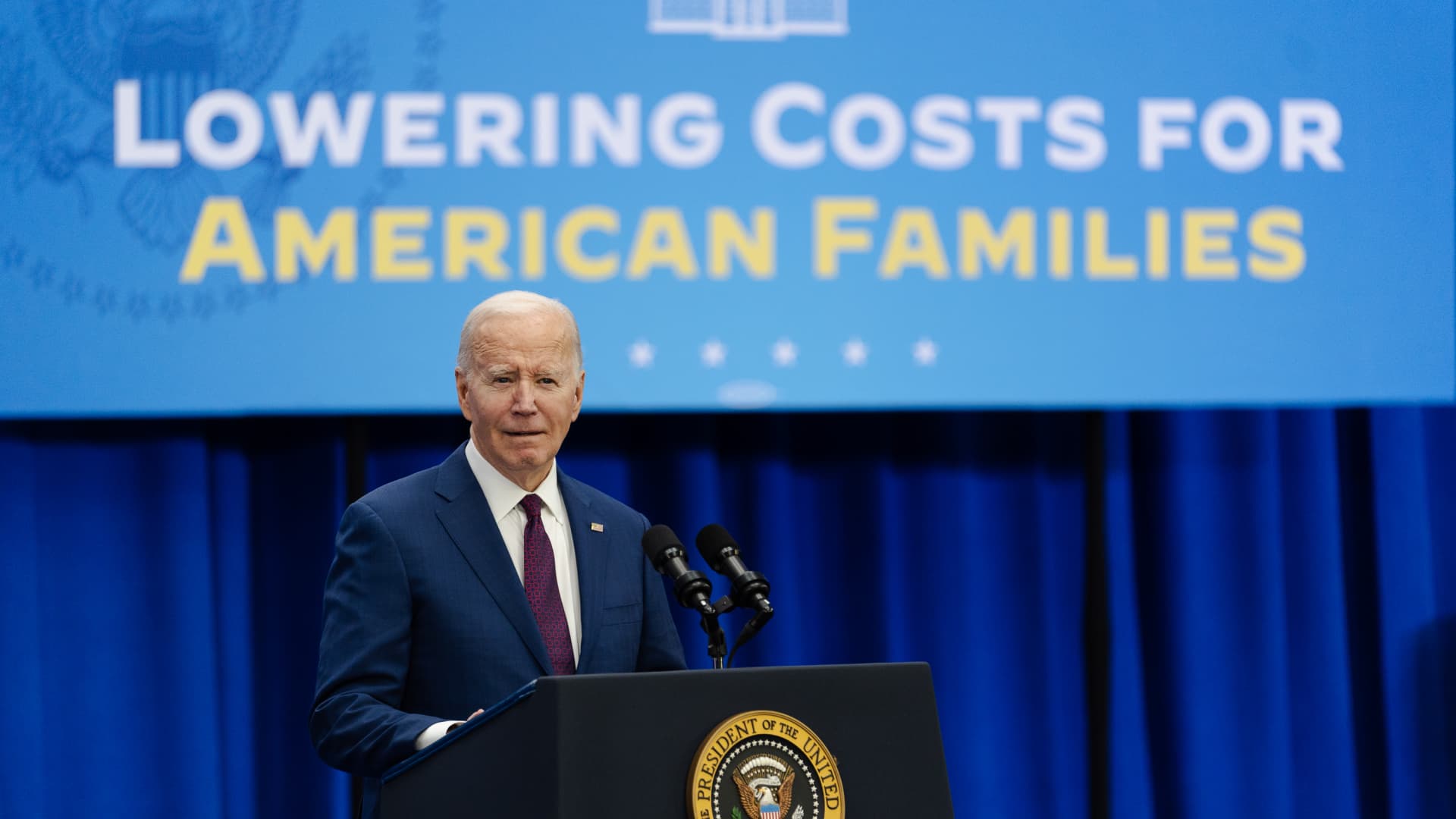
President Joe Biden speaks during an event about lowering costs for American families at the Granite State YMCA Allard Center of Goffstown on March 11, 2024 in Goffstown, New Hampshire.
Sophie Park | Getty Images News | Getty Images
President Joe Biden is starting to win the inflation blame game against corporations.
A recent Financial Times-Michigan Ross online poll found that 63% of survey respondents blame price increases over the last six months on "large corporations taking advantage of inflation," up from 54% in November. Meanwhile, 38% of respondents attributed the price increases to Democratic policies, unchanged from November.
A 59% majority still disapproved of Biden's handling of the economy, down only slightly from 61% in November, the poll showed. The poll, taken between Feb. 29 and March 4, surveyed 1,010 registered voters with a margin of error of +/-3.1%.
Still, voters' growing frustration with businesses is a relief for the White House and Biden's reelection campaign.
Both have been slogging through an uphill battle to convince Americans that stubbornly high inflation is the fault of corporations, not Bidenomics.
"Too many corporations raise their prices to pad their profits, charging you more and more for less and less," Biden said Thursday in his State of the Union address. "That's why we're cracking down on corporations that engage in price gouging or deceptive pricing from food to health care to housing."
The consumer price index released Tuesday found that inflation ticked 0.4% higher in February, mostly matching analysts' expectations. The rise in prices was driven primarily by housing costs, one of the key focuses of Biden's 2025 budget proposal released Monday.
"As I said in my State of the Union, we have more to do to lower costs and give the middle class a fair shot," Biden said Tuesday in response to the CPI report.
In another welcome data point for Biden, consumer confidence has seen a record turnaround.
In February, consumer sentiment was at 76.9, roughly the same level as when Biden entered office, according to a widely watched consumer survey from the University of Michigan. That is a remarkable rebound from when consumer sentiment in the survey hit an all-time low of 50.0 in June 2022.
The Financial Times poll confirmed rosier economic attitudes. Though the majority was still more negative on the economy, the gap narrowed: 30% of respondents rated overall economic conditions as positive, a nine-point increase from November.
Biden's battle against corporate interests has been the foundation of his economic platform since the beginning of his administration.
From an aggressive antitrust crusade to a crackdown on junk fees to new rules on drug pricing negotiation, the president has established various battlefronts to wage war against rising consumer costs. Biden's 2025 budget also restated his demand for tax hikes on billionaires and wealthy corporations.
However, as the November general election looms, Biden's next economic face-off is against former President Donald Trump, the presumptive Republican presidential nominee.
In a CNBC interview Monday, Trump slammed Biden's economy and "through the roof" energy and food prices. Recent polling has found that voters still prefer Trump's handling of the economy to Biden's. Trump has said that if he's elected he is considering universal import tariffs, which would likely raise consumer prices.
In the same interview, Trump suggested he was open to making cuts in Social Security, Medicaid and Medicare. The Biden campaign immediately jumped on it.
"This morning, Donald Trump said cuts to Social Security and Medicare are on the table again," Biden said Monday at a speech in New Hampshire following the release of his 2025 budget proposal. "I'm never going to allow that to happen."

 JimMin
JimMin 









